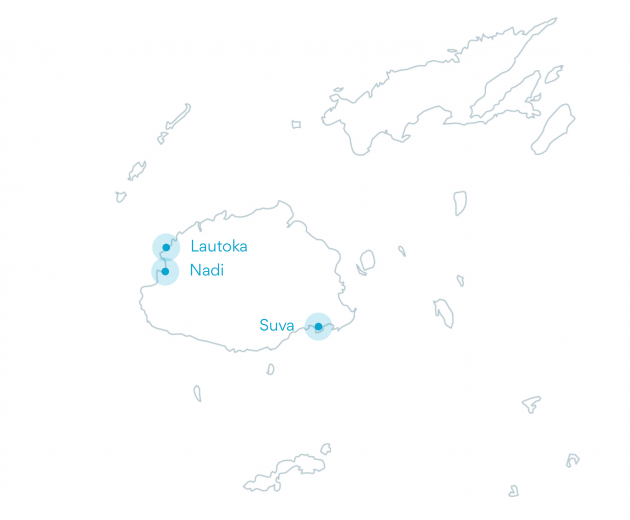The World Mosquito Program in Fiji is part of a global, not-for-profit initiative that is working to protect local communities from mosquito-borne diseases.
Mosquito-borne diseases are a serious health concern for people living in Fiji. Dengue outbreaks of varying magnitude have been documented in Fiji since 1971. Large epidemics of different serotypes occurred in 1997–98 and 2013–14, with small sporadic outbreaks in between. Since 2014, the incidence of dengue in Fiji has remained high and there have been regular smaller outbreaks. In 2018, more than 4,000 dengue cases were reported in Fiji.
(Data updated June 2023)


The World Mosquito Program was pleased to announce a new partnership with the Fijian health authorities in August 2017. The WMP and the Ministry of Health and Medical Services in Fiji have made a commitment to work together to implement our innovative approach to protect people from mosquito-borne diseases such as dengue, Zika and chikungunya.
Supported and funded by the Australian Government, the initiative began with the roll-out of our Wolbachia method across the Lami-Suva-Nakasi Corridor between July 2018 and March 2019, in collaboration with local communities and government.
In June 2018, we received funding from the New Zealand Government to continue to reduce the dengue burden in Fiji. The funding has enabled the program to expand its self-sustaining method to Fiji's Western division to include more than 120,000 people in areas around Nadi and Lautoka.
The World Mosquito Program's approach involves releasing mosquitoes that carry Wolbachia. Wolbachia are natural and safe bacteria that reduce the ability of Aedes aegypti mosquitoes to transmit viruses between people. The mosquitoes we release breed with the wild Aedes aegypti mosquitoes in the area, passing Wolbachia to their offspring.
Engagement and public acceptance
98%
97%
96%

Progress in Fiji
Factsheet







